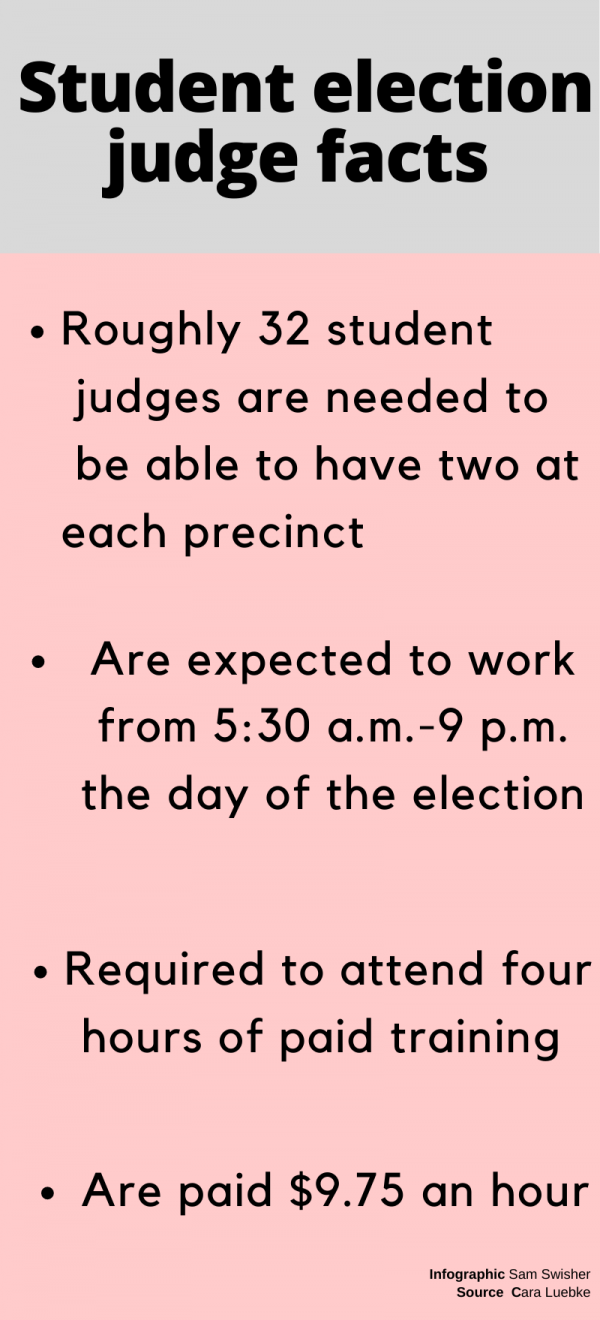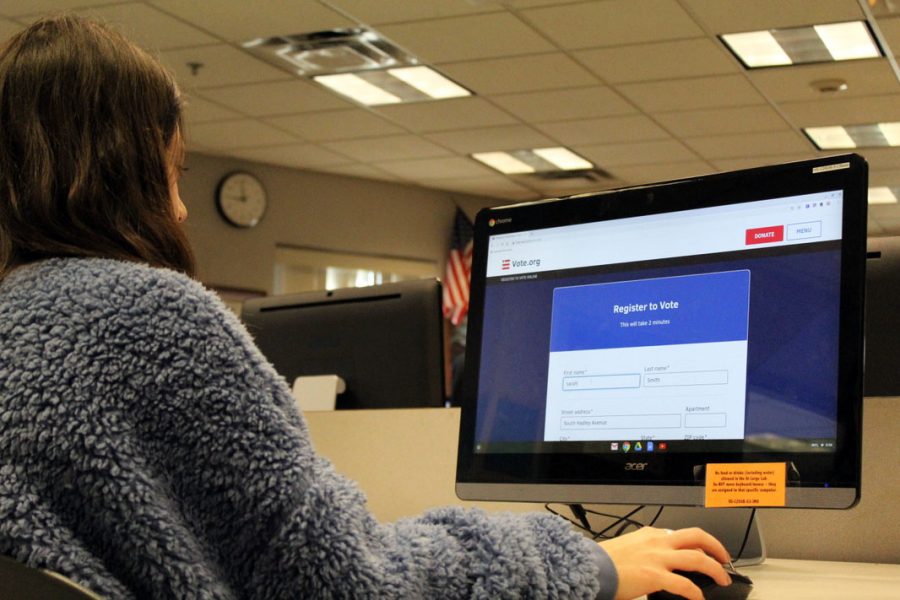Students get involved in primaries
Student election judges to help in election process
February 29, 2020
As junior Thor Anderson prepares to serve for a second year as a student election judge, he reflected on the insight he’s gained serving as an election judge in 2019.
“I’ve just learned a lot more about some of the delays that are experienced and the problems that can happen in an election,” Anderson said. “I always heard about wait times longer than people expected at polls and I used to get really mad, but now I have a better understanding so that now I see it from the inside of the process, that these sort of problems can just happen.”
According to City Election Specialist Cara Luebke, being a student election judge gives students a chance to be involved in the city’s elections, which involve large numbers of residents.

“It’s a great opportunity to be a part of the community and do some things that touch many, many voters and many residents of the city,” Luebke said. “One of the great things about St. Louis Park is that we have a very high voter turnout, so if you’re a student who wants to be involved in meeting the community and being a part of what’s going on this is a really good opportunity.”
According to junior Dahlia Krebs, although the primaries don’t have a direct outcome, she still cares for the overall outcome.
“I feel connected to the process even though I can’t vote because whoever wins the primary has a chance of winning the presidency and whoever wins the presidency has a major effect on my life and everyone’s life,” Krebs said.
Anderson said being a student election judge allows him to be more aware of the process of city politics, even though he is unable to vote in them.
“I’m a lot more engaged in the community and in the government and election process, which is important to me because I can’t vote yet and it is a good opportunity to learn about those things,” Anderson said.
According to Anderson, the job allows you to interact with many people and gain knowledge about elections with minimal commitment.
“I would definitely encourage it, it’s just a day of your time so it’s really not a huge time commitment at all and you don’t even have to work the whole day. You get to meet lots of people and you get to just learn a lot of things.”
According to Luebke, being a student election judge gives students a special opportunity to get involved in politics without aligning themselves with a political party.
“The great thing about election judges is that they must be non-partisan, so if high schoolers are uncomfortable with the political processes of elections they have space to still be part of the process and also maintain nonpartisanship, which is very unique,” Luebke said.
According to Luebke, students are able to use technology more efficiently than older judges, which gives them an advantage.
“Students election judges can really help ensure that some of those technology pieces of the election move a little smoother. They can often jump in fast and diagnose what’s going on with the technology much faster than adults. Students are such an asset to us and how quickly the election is completed.”




